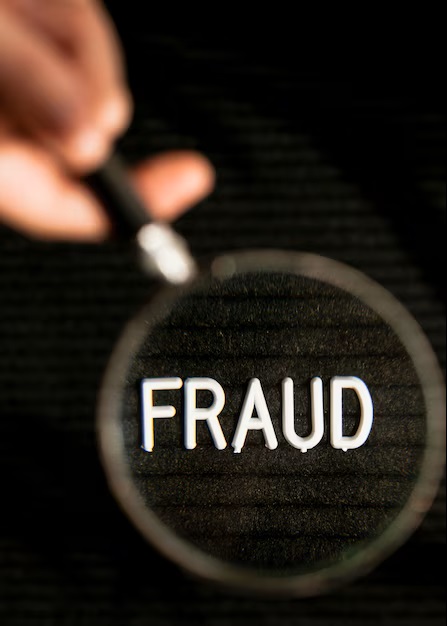The global financial landscape is often marred by scandals, and the recent developments surrounding a notorious cryptocurrency scheme have captured widespread attention. With significant amounts of invested capital evaporating, many participants in this saga find themselves questioning the integrity of their initial decisions. As legal proceedings unfold, the focus has shifted towards individuals involved in questionable practices, raising ethical concerns and public scrutiny.
In an unexpected twist, one prominent participant in this widespread dilemma has put forth a plea for a more lenient outcome in light of the financial distress experienced by countless investors. This appeal highlights the complexities of accountability and redemption within a framework where trust has been severely compromised. As the legal system grapples with the implications of such requests, discussions about justice and responsibility continue to ignite debates among experts and the public alike.
As narratives intertwine, the implications of this case extend beyond a single individual, touching on the broader themes of morality, legality, and the urgent need for regulatory reforms in the fast-evolving digital currency sector. The journey of recovery for affected investors is far from over, and the outcomes of these proceedings may set significant precedents for the future of financial governance.
Understanding OneCoin’s Impact on Investors
The phenomenon surrounding this cryptocurrency venture has left a significant mark on the financial landscape, particularly among individuals who invested their funds with high hopes. The aftermath of these activities has generated considerable anxiety and distrust within the investor community, highlighting the vulnerabilities present in the digital currency market.
Financial Consequences
For many, the financial repercussions have been devastating. Individuals who poured their savings into this scheme have faced substantial economic hardship. The collapse of this enterprise not only eroded personal finances but also strained relationships, as numerous investors grapple with feelings of betrayal and lost trust in similar digital initiatives.
Shifts in Investor Sentiments
Emotional turmoil has become a common sentiment among those affected. As a result of their experiences, many people are now more cautious and skeptical when it comes to investing in cryptocurrencies. This shift in mindset may lead to increased regulation and a demand for greater transparency in the cryptocurrency sector, as investors seek to safeguard themselves against future deceptions.
Ultimately, the repercussions of this incident extend beyond individual losses, influencing broader perceptions of cryptocurrency legitimacy and stability. Ongoing discussions about fraud prevention and investor protection are essential to rebuilding trust in the digital currency realm.
Fraudulent Activities Within the Cryptocurrency Sector
The cryptocurrency industry has witnessed a considerable rise in deceptive practices, casting a shadow over its innovative potential. As digital currencies gain traction, they have attracted both investors and opportunists eager to exploit the lack of regulation. This has led to an environment where fraudulent schemes can flourish, undermining the trust that is essential for the growth of this sector.
Key types of fraudulent activities include:
- Ponzi Schemes: These scams promise high returns to early investors, using funds from new participants to pay off earlier investors.
- Exit Scams: Operators vanish with investors’ money after attracting significant funds, often following an Initial Coin Offering (ICO).
- Phishing Attacks: Malicious entities trick users into revealing their private keys or login credentials through counterfeit websites or communications.
- Pump and Dump Schemes: Defrauders inflate the price of a low-value crypto asset through misleading information, then sell at the peak, leaving others with losses.
To combat these illicit activities, regulators and law enforcement agencies are stepping up their efforts. However, the anonymous nature of cryptocurrencies presents unique challenges, necessitating enhanced methods of detection and prevention.
Investors are urged to conduct thorough research before engaging with any digital asset or platform. Awareness of common red flags can significantly mitigate the risk of falling victim to these schemes:
- Promises of unrealistic returns.
- Lack of transparency regarding the project’s team or technology.
- Pressure to invest quickly or before a “limited opportunity” expires.
- Unverified claims about partnerships or endorsements.
Ultimately, fostering a trustworthy ecosystem in the cryptocurrency market requires cooperation between industry participants, regulatory bodies, and investors. By promoting transparency and accountability, the sector can work towards diminishing the prevalence of fraudulent practices.
Legal Consequences for Admitted Fraudsters
The repercussions faced by individuals who have acknowledged their involvement in illegal activities can be significant and varied. Legal systems around the world impose strict penalties to deter dishonest conduct and protect the public. These outcomes not only serve as punishment but also aim to restore public trust and ensure accountability.
- Civil Penalties: Offenders may be subjected to financial restitution, requiring them to compensate victims for their losses.
- Criminal Charges: Individuals can face various charges, including hefty fines and incarceration, depending on the severity of their actions.
- Probation Requirements: In some cases, courts may impose probation, restricting the individual’s freedoms as part of their rehabilitation process.
- Professional Disqualification: Many jurisdictions enforce bans or suspensions from professional practices, particularly in finance or business-related fields.
Furthermore, the societal implications of such actions can lead to long-lasting stigma and damage to personal reputations. The journey towards redemption often involves navigating complex legal frameworks and public scrutiny.
- Increased Oversight: Regulatory bodies may introduce stricter oversight for individuals operating in related industries.
- Reparative Efforts: Offenders might be encouraged or mandated to engage in community service or educational programs focused on ethical practices.
- Public Awareness Campaigns: Initiatives can be launched to educate the public on recognizing and avoiding fraudulent schemes, thus fostering a more informed community.
Ultimately, addressing the actions of individuals involved in misleading practices is crucial for upholding the principles of justice and integrity within society.
Exploring Sentencing Options and Reductions
This section delves into the various avenues available within the legal framework for individuals facing punishment. It focuses on understanding how mitigating circumstances and cooperation with authorities can influence the outcomes of judicial proceedings. The discussion emphasizes the role of prior conduct, restitution efforts, and other relevant factors that may warrant consideration for leniency.
Common Factors Considered for Reductions
- Cooperation with law enforcement
- Demonstration of remorse and accountability
- Restitution to affected parties
- Impact of circumstances leading to the offense
- Prior criminal history or lack thereof
Potential Outcomes from a Mitigated Punishment
- Reduced prison time or alternative sentences
- Probation instead of incarceration
- Participation in rehabilitation programs
- Community service requirements
Understanding these aspects can provide valuable insight for both defendants and their legal representation when navigating through complex sentencing procedures.
Victims Speak Out: Personal Stories
This section sheds light on the experiences of individuals who have been profoundly affected by a significant financial scheme. Through their narratives, we gain insight into the emotional and financial turmoil that many have faced, showcasing the widespread impact of deceitful practices on everyday lives.
Heartfelt Accounts from Those Affected
Many victims recount their journeys, revealing the toll that the circumstances have taken on their lives. Here are some of their stories:
- Emma, a single mother: After investing her life savings, Emma reflects on how her hopes for a brighter future were shattered. “I believed in the promises made. Now, I’m struggling to provide for my children.”
- David, a retiree: “I thought I was securing my retirement. Instead, I ended up losing everything. It’s difficult to describe the sense of betrayal.”
- Linda, a small business owner: “The investment was my chance to expand my business. What I thought would be a smart choice turned out to be a nightmare.”
The Emotional Toll
Aside from the financial strain, the emotional weight is often unbearable. Victims share their feelings:
- Shame: Many individuals express embarrassment for their investment choices, feeling as though they should have known better.
- Anxiety: The uncertainty about their financial future leads to sleepless nights and constant worry.
- Loss of Trust: The betrayal has made it difficult for victims to trust others, affecting both personal and professional relationships.
These heartfelt testimonies illustrate the profound consequences of deceitful financial activities, highlighting the urgent need for awareness and protection against such occurrences in the future.
The Future of Cryptocurrency Regulation
The landscape of digital currencies is evolving rapidly, prompting discussions around the necessity of comprehensive governance. As the market matures, regulatory frameworks are anticipated to play a crucial role in ensuring transparency, security, and consumer protection. This transformation aims to foster trust among users and stakeholders, ultimately paving the way for sustainable growth within the sector.
The Role of Global Cooperation
To effectively address the challenges posed by decentralized financial systems, collaborative efforts among nations will become essential. By harmonizing regulations, countries can mitigate risks associated with fraud and illicit activities while promoting innovation and competition. Such international partnerships may lead to the establishment of universal standards that govern digital asset transactions.
Technological Innovations and Compliance
Emerging technologies like blockchain and smart contracts are likely to shape future compliance measures. These digital tools could streamline verification processes and enhance accountability, enabling regulators to monitor transactions more efficiently. As a result, the integration of advanced technology in regulatory practices promises to bolster security and reliability, appealing to a wider audience of investors and users.
Q&A: Admitted fraudster seeks lessen punishment onecoin losses
What is the significance of the OneCoin case in the context of cryptocurrency fraud?
The OneCoin case is one of the largest and most notorious Ponzi schemes in the cryptocurrency world, resulting in billions of dollars lost by investors. It highlights the vulnerabilities and risks associated with cryptocurrency investments, especially when scams exploit the complexity and novelty of digital currencies. The case has led to increased scrutiny from regulatory bodies and has sparked discussions regarding investor protection and the need for stronger regulations in the cryptocurrency space.
Why is the admitted fraudster seeking a lighter sentence, and what factors are considered in such requests?
The admitted fraudster is likely seeking a lighter sentence as a result of cooperating with authorities or expressing remorse over their actions. In many legal systems, factors such as cooperation with law enforcement, restitution to victims, and genuine remorse can influence sentencing decisions. These elements might lead a judge to consider a lighter sentencing option, as they demonstrate the defendant’s willingness to rectify their wrongdoing and assist in the pursuit of justice for victims.
What impact did the OneCoin scheme have on investors, and how many people were affected?
The OneCoin scheme had a devastating impact on investors, with estimates suggesting that around 4.4 million people across several countries were affected, losing an estimated $4.4 billion. Many investors were lured in by the promise of high returns and a revolutionary cryptocurrency that never actually traded on any exchange. The fallout led to financial ruin for many individuals, and the case serves as a cautionary tale about the importance of due diligence and skepticism in investment strategies, especially in emerging markets like cryptocurrency.
How have authorities responded to the rising wave of fraud cases in the cryptocurrency market since the OneCoin scandal?
In response to the increasing number of fraud cases in the cryptocurrency market, including the OneCoin scandal, authorities worldwide have been ramping up their regulatory efforts. This includes implementing stricter compliance measures for cryptocurrency exchanges, enhancing educational resources for investors about the risks associated with digital assets, and increasing coordination between international law enforcement agencies to tackle cross-border fraud. Many governments are also exploring the establishment of clearer regulatory frameworks to foster a safer investment environment in the evolving cryptocurrency landscape.
What lessons can investors learn from the OneCoin fraud, and how can they protect themselves from similar schemes?
Investors can learn several critical lessons from the OneCoin fraud. Firstly, they should always conduct thorough research before investing in any cryptocurrency or investment opportunity, focusing on the legitimacy of the firm or project and its operations. Secondly, they should be wary of promises of high returns with minimal risk, as this is often a red flag indicating potential fraud. Thirdly, diversifying investments and consulting with financial experts can provide additional layers of security. Lastly, staying informed about regulatory developments and being attentive to warning signs of scams can significantly reduce the risk of falling victim to fraudulent schemes like OneCoin.
What actions have federal prosecutors taken against the former FTX executives regarding money laundering charges in 2023 and 2024?
In 2023, federal prosecutors initiated enforcement actions against former FTX executives, including Sam Bankman-Fried, related to conspiracy to commit money laundering and other financial crimes. The prosecution has detailed a variety of regulations that these individuals allegedly violated, leading to significant financial losses, including hundreds of millions of dollars in assets. These cases have attracted considerable legal news attention, particularly as the SEC staff and the CFTC continue to investigate market manipulation and illegal activities involving the crypto exchange. The Manhattan federal court, presided over by Judge Edgardo Ramos, is overseeing the proceedings, where defendants, including those who admitted to defrauding OneCoin investors, face severe penalties, potentially including long prison terms.
How has the proposed rule by the U.S. Department of Justice impacted private fund advisers in relation to money laundering and financial services regulations?
In April 2024, the U.S. Department of Justice announced a proposed rule that would significantly impact private fund advisers by imposing stricter registration requirements aimed at preventing illicit financial activities, including money laundering. This rule addresses concerns regarding foreign entities and their role in the financial sector, aiming to enhance risk management practices across regulated entities. During the public comment period, industry professionals and legal experts provided feedback, highlighting the potential challenges associated with compliance costs and the complexity of adhering to new regulations. The proposed changes reflect a broader initiative to bolster oversight in the financial markets, particularly in light of the lessons learned from high-profile cases, such as the one involving Ruja Ignatova, the notorious figure behind OneCoin, who was charged with defrauding investors.
What significant developments occurred in the legal proceedings related to money laundering and securities fraud involving OneCoin investors in 2022 and 2023?
In 2022 and 2023, significant developments unfolded in the legal proceedings concerning OneCoin investors, particularly involving a man who admitted to defrauding them. In a federal court case, the accused pleaded guilty to charges of conspiracy to commit money laundering, revealing that the scheme involved millions of dollars and a complex web of financial crimes. Prosecutors presented facts and circumstances demonstrating the extensive efforts to launder funds generated from this fraudulent operation, prompting actions from both state and federal authorities. The Securities and Exchange Commission (SEC) and the Commodity Futures Trading Commission (CFTC) have also taken steps to resolve claims and protect investors. District Judge proceedings have examined the role of various entities and individuals within the scope of these illegal activities, reflecting ongoing scrutiny over compliance and regulatory enforcement in the financial services sector.
What recent regulatory changes announced in the Federal Register are impacting private equity affiliates and brokers in relation to AML compliance?
In April 2024, significant regulatory changes were announced in the Federal Register that will impact private equity affiliates and brokers concerning Anti-Money Laundering (AML) compliance. These changes come as part of a broader initiative by federal regulatory agencies, including the Securities and Exchange Commission (SEC) and the Commodity Futures Trading Commission (CFTC), to tighten oversight and mitigate financial crimes. The amendments require more stringent reporting and due diligence measures for entities managing assets, particularly those involving millions in assets located outside the United States. The SEC would also implement additional compliance requirements, addressing the growing concerns about illicit financial activities in the financial services sector. These steps aim to ensure that brokers and private equity firms take necessary actions to prevent money laundering and maintain the integrity of the financial system.
What recent developments have emerged regarding the case involving OneCoin investors, particularly in relation to the Second Circuit’s decisions and the role of the Futures Commission?
Recent developments highlight that on April 15, prosecutors charged several individuals in a class action for defrauding OneCoin investors. This case is now under scrutiny in the Second Circuit, where OneCoin investors asked a judge to not consider non-U.S. factors in the proceedings. The Board of Governors and the Federal Reserve have also been referenced due to their potential role in the scheme, which reportedly resulted in losses of around $4 billion. The situation escalated when law firms, including LL.P. and Law360, announced that they would take steps to mitigate the cost of compliance for those involved in custody services linked to the ETFs associated with this case. Based on information in connection with this scheme, it has been noted that the financial implications could extend to a staggering $2.7 billion. The hearings scheduled for April 24 will further clarify the legal landscape and address the future of the ETFs in question.
What actions have been taken by regulatory bodies in response to the allegations of defrauding OneCoin investors, particularly concerning ETFs and the reported financial losses?
Regulatory bodies have been closely monitoring the situation involving the defrauding of OneCoin investors, which has resulted in losses estimated at around $4 billion. In May 2022, Reuters reported that a prominent LLP announced that it would initiate legal actions related to this case. The investigation focuses on the implications for the securities and futures markets, particularly concerning the development of ETFs linked to the OneCoin scheme. Furthermore, insiders within the financial industry have indicated that the potential financial impact could reach up to $2.7 billion, raising alarms about the integrity of these investment vehicles and the need for stricter oversight.
What actions are being taken against those involved in defrauding OneCoin investors?
The authorities are actively investigating and prosecuting individuals involved in defrauding OneCoin investors, with reports indicating that the total amount defrauded may reach approximately 4 billion. A significant aspect of these efforts includes examining various investment schemes, including the potential involvement of exchange-traded funds (ETFs) that could have been misrepresented in relation to the fraudulent activities. Recent developments suggest that the case has gained traction, with specific attention on assets linked to the alleged fraud, amounting to 2.7 billion being scrutinized in the legal proceedings.









